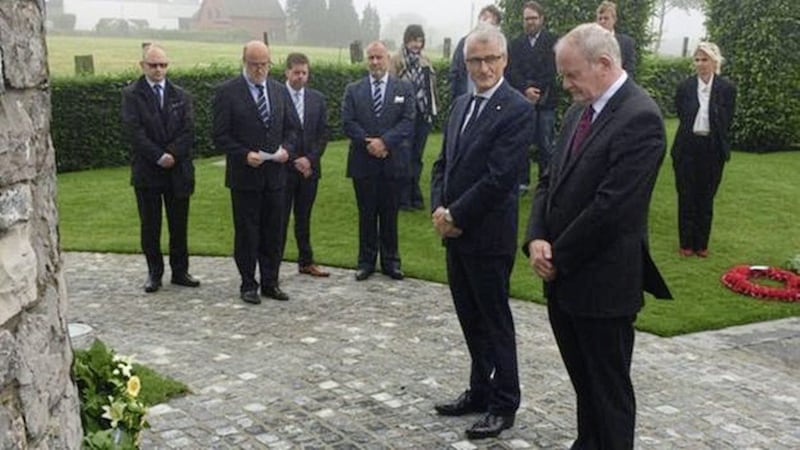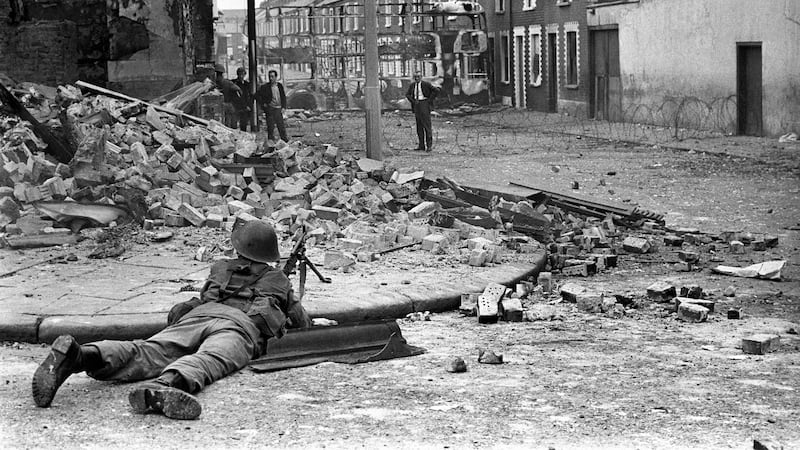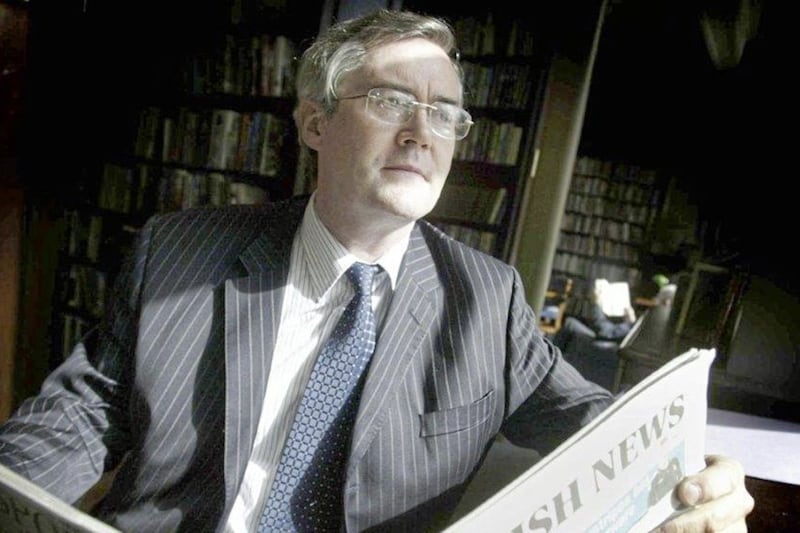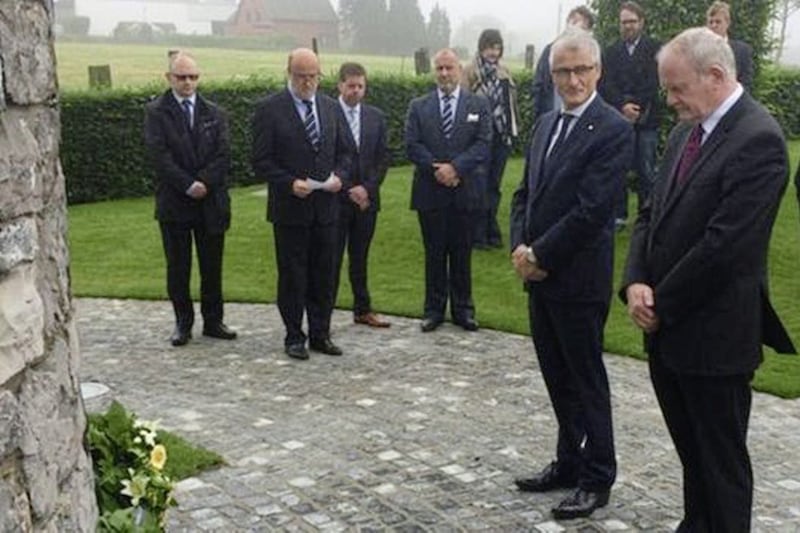THE achievement of peace after 3,600 deaths on this island would have been unimaginable without the personal commitment, persistence and patient diplomacy of Martin McGuinness.
Like Michael Collins in 1921, he was able to use his formidable reputation, natural charisma and leadership skills within the IRA to carry the republican movement from war to peace.
No other figure within the armed movement could have persuaded the paramilitaries to negotiate the twin hurdles of decommissioning, in 2005, and the endorsement of policing and justice in 2011.
And more than Collins, who often combined force with diplomacy after the Treaty, Martin McGuinness demonstrably turned his face against his violent past.
Born in the Bogside in 1950 into a hard-working, devoutly Catholic family, he had grown to maturity in a city which, as the ‘citadel of discrimination’, was to become the Achilles’ heel of the Unionist regime.
A teenage McGuinness joined the early civil rights marches – led by moderate leaders like John Hume - and was inexorably drawn into the ‘Battle of the Bogside’ in August 1969.
After internment in 1971 he was second in command in the burgeoning Provisional IRA in the city’s ‘no-go’ areas as General Robert Forde contemplated a military assault on the city.
The tragedy of Bloody Sunday followed and, by the summer of 1972, McGuinness, aged just 22, was present with Gerry Adams at a secret meeting with MI5 representatives in a private house on the Derry-Donegal border.
In his report to Downing Street on the pre-ceasefire discussions, Sir Philip Woodfield described the young Derry man as ‘both respectable and respectful’. He clearly did not regard the IRA leader as a thug.
Until the 1981 Hunger Strike, he single-mindedly used ‘the cutting edge’ of the IRA campaign to advance Irish unity. However, the wave of emotional support for the hunger-strikers crystallised into concrete political gains for Sinn Féin.
This marked a shift towards electoral engagement by the republican movement with the Derry man defending the ‘armalite and ballot-box’ strategy.
The shocking ‘Poppy Day’ bombing in Enniskillen in November 1987, in which 11 people were killed in a no-warning IRA bomb, was another watershed for McGuinness and a section of the IRA leadership.
It led directly to the Hume-Adams talks of 1988 which paved the way for the first stirring of the peace process in 1993.
The rest is history, leading to the ceasefires, the involvement of the two governments, US President Clinton and the Good Friday Agreement of 1998.
In his remarkable rapport with the nationalist nemesis, Ian Paisley, the Derry man later came to epitomise the peace process.
At Stormont he sought to disarm and persuade his most bitter detractors through his natural charm and gift for friendship.
And while declaiming his loyalty to his IRA oath and controversially justifying ‘the Long War’, he had no compunction in 2009 in condemning dissident republican assassins as ‘traitors to the island of Ireland’.
The tributes to the late Sinn Féin leader from Baroness Paisley, his close Presbyterian friend Rev David Latimer and former first minister Lord Trimble, among others, have been striking.
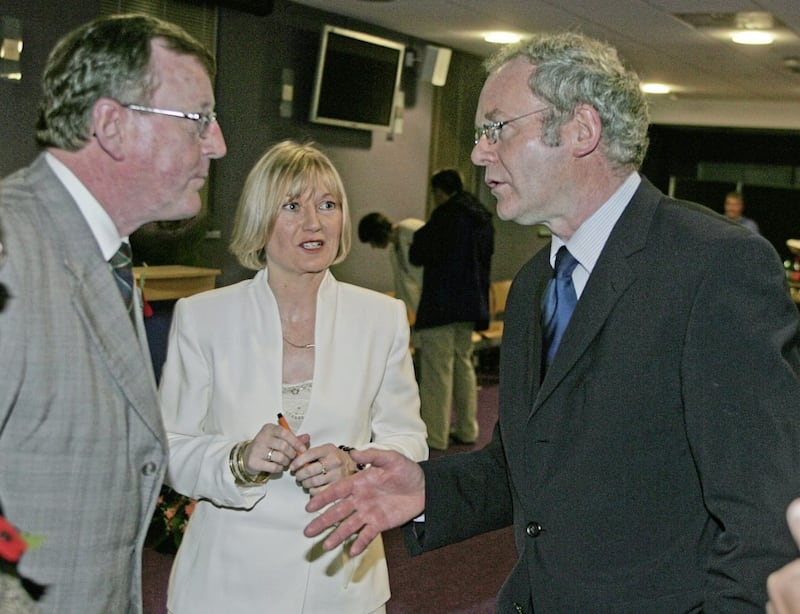
Inevitably and understandably, the reaction of relatives of the IRA’s victims - notably Lord Tebbitt, whose wife was crippled in the Brighton bombing - have been harsher by far.
Yet there can be no doubt that history will view Martin McGuinness in a positive life: as a ‘man of war’ who became a dedicated peacemaker and who, in the second phase of his public career, helped transform Northern Ireland into a shared space where peace prevails and where reconciliation - though immensely difficult - is still possible.
- Dr Éamon Phoenix is a political historian and a member of the Taoiseach’s Expert Advisory Committee on Centenaries.
